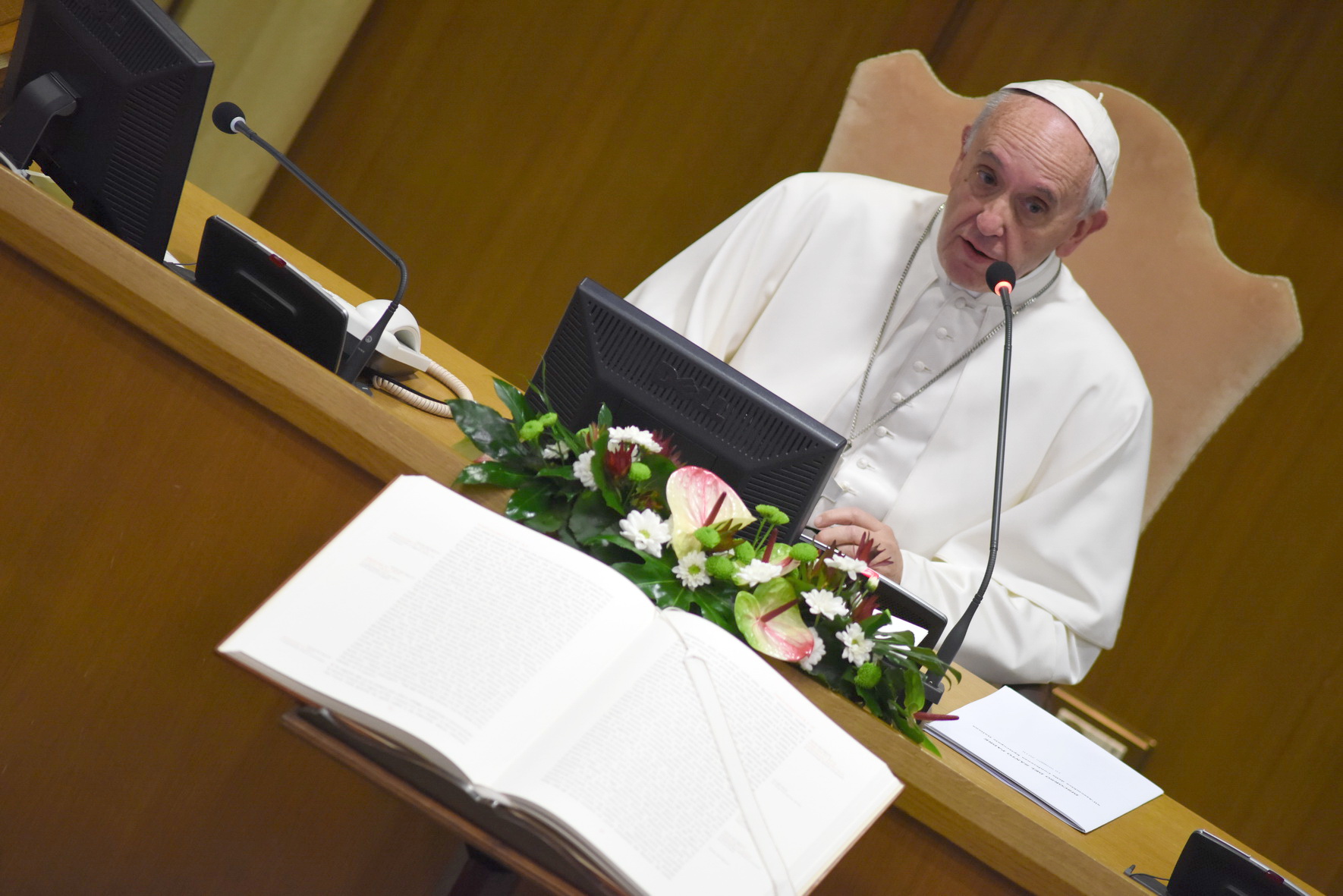Tradition
It does not do any good to a dogma, to a truth of the Magisterium, to crystallise it and sacralise it in the form and time in which it was drawn up and promulgated. The Pope gives a practical side to this thought, applying it to a particular theme of the Tradition and Catechism: the death penalty

The Church, by its very nature, has the responsibility “‘to guard’ and ‘to move forward’, so that the truth present in Jesus’ proclamation of the Gospel may grow in fullness until the end of time”. This is one of the highlights of the remarkable speech delivered by Pope Francis to mark twenty-five years since the promulgation of the Catechism of the Catholic Church.
To reiterate that the Catechism today is a vivid expression of a depositum fidei, of a Traditio ecclesiae that grows and matures in time.
“Tradition is a living reality and only a partial vision regards the ‘deposit of faith’ as something static”, the Pope writes. And he mentions the Vatican Council II: “This Tradition develops, grows, constantly moves forward towards the truth until the words of God are fulfilled”.
Hence the task of “guarding” a truth received and not made by the Church, so as to preserve it from heresy and from all contamination that may alter it; and, at the same time, to “move forward”, that is to say, to develop the untapped and unexpressed potential of the Truth and of the Word of God, as we listen and respond to the res novae and the signs of the times. A Word that in the Gospel identifies with the very person of Jesus, the Logos, God’s Word-Truth to us. In other words, preserving and transmitting the timeless and ever new vibrancy of the Gospel, and of the Tradition in which it took shape and form over the centuries, means to give voice to the ever-living and present Word of the Divine Master in today’s Church and world. “We thus approach the men and women of our time to help them discover the inexhaustible richness contained in the person of Jesus Christ”.
It does not do any good to a dogma, to a truth of the Magisterium, to crystallise it and sacralise it in the form and time in which it was drawn up and promulgated.
As Blessed Paul VI said, “to be faithful to the Tradition does not mean to feel bound to the past; it means maintaining the drive towards life and the time that is to come… Tradition is not a museum, a cemetery, archaeology. It is a tree that blooms every spring, a sap that continually renews itself”. The Tradition reflects the dynamism of the Word of God, which – Pope Francis says – “cannot be moth-balled like some old blanket in an attempt to keep insects at bay! No. The word of God is a dynamic and living reality that develops and grows because it is aimed at a fulfilment that none can halt”. And he concludes: “Doctrine cannot be preserved without allowing it to develop, nor can it be tied to an interpretation that is rigid and immutable without demeaning the working of the Holy Spirit”.
This is a tacit answer to those who have raised doubts or have even advanced accusations of heresy and corrections against the Magisterium of Francis, which is aimed at transposing key points of the Traditio Ecclesiae in today’s Church and society, in response to pastoral issues and “new challenges and prospects that open up for mankind”. It is a wake-up call aimed at shaking that conservatism in the Church focused on a fossilised and stagnant vision of the dogma.
The Pope gives a practical side to this thought, applying it to a particular theme of the Tradition and Catechism: the capital punishment. A punishment that, in the past, “when means of defence were scarce and society had yet to develop and mature as it has, appeared to be the logical consequence of the application of justice”. And this led to its legitimization and practice even “in the Papal States”.
Such punishment, however, is inacceptable. Firstly, because “it is contrary to the Gospel”. Indeed, with the death penalty “a decision is made to suppress a human life which is always sacred in the eyes of the Creator and of which, ultimately, only God is the true judge and guarantor”. Secondly, because it “violates human dignity”. Finally, because of a “change in the awareness of the Christian people which rejects an attitude of complacency before such a punishment”.
The Pope underlines the “developments in the teachings of recent Popes”. Such developments provide the basis for his regulatory address: “We must state clearly that the death penalty is an inhuman measure… No one ought to be deprived not only of life, but also of the chance for a moral and existential redemption”. Which is why the death penalty “should find in the Catechism of the Catholic Church a more adequate and coherent treatment in the light of these expressed aims”.